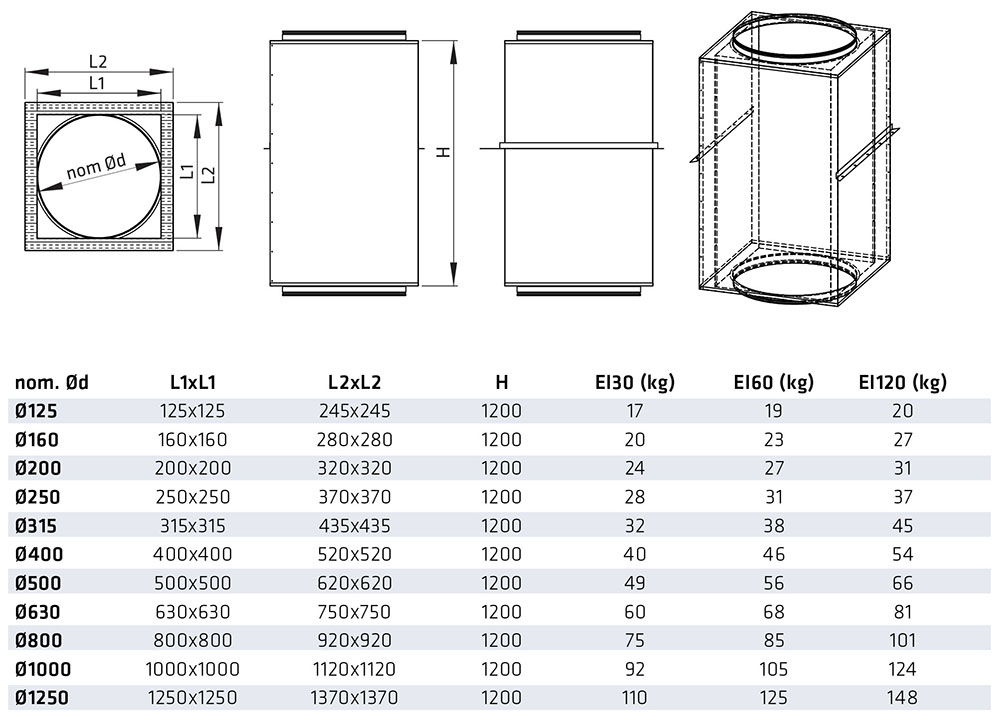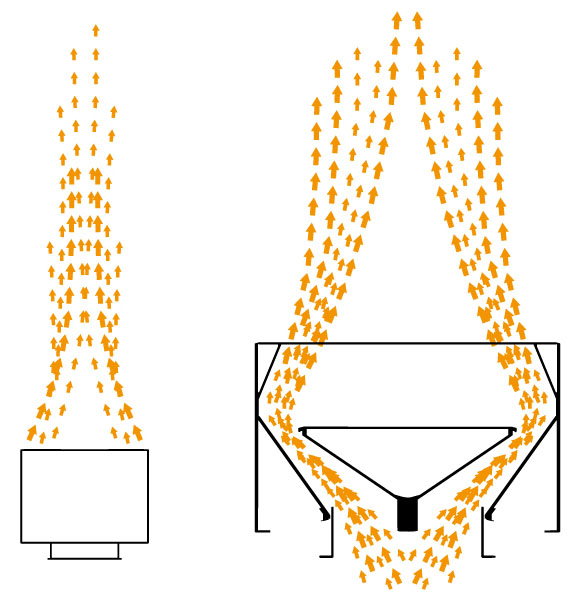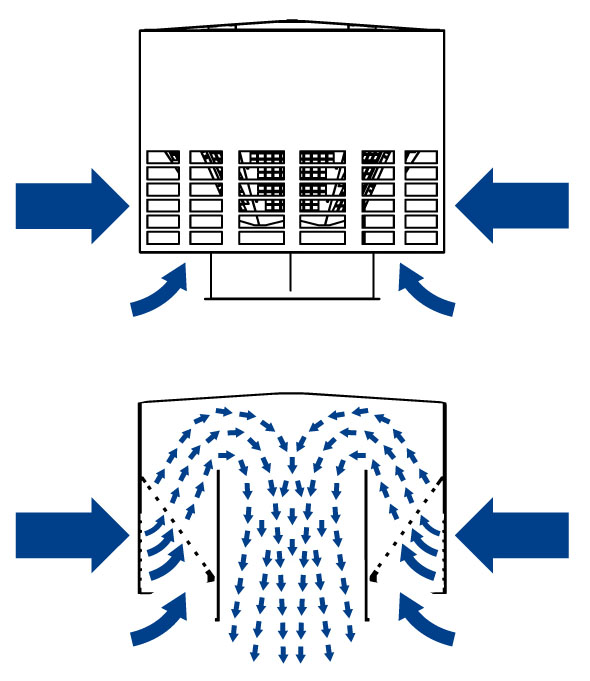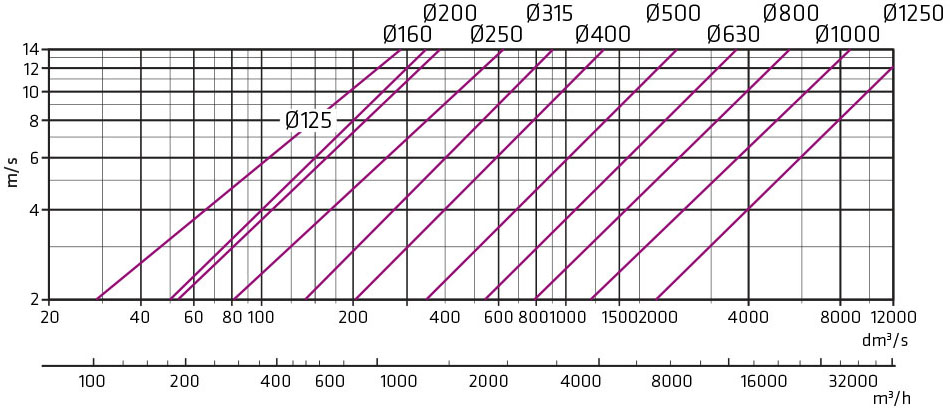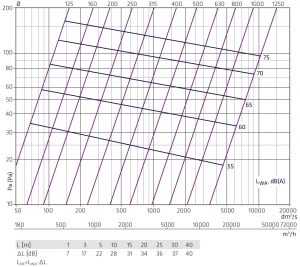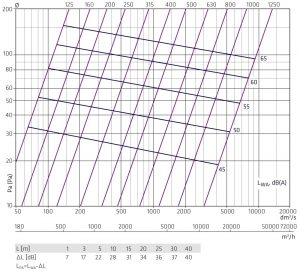Description
OTSO roof hoods for exhaust and inlet air represent Scandinavian design and have been tested in the challenging Nordic climate conditions. Together with KONTIO roof hoods they form an elegant entity with an unified style. The OTSO roof hoods always have a round interface.
The OTSO roof hoods have a rectangular form. A groove in the middle of the roof hood strengthens the outer shell. The construction gives them exceptionally solid structure. Structural heights for the OTSO roof hoods are very low, which also reduces the wind loads and enhances their appearance. A horizontal groove in the middle of the unit provides a visual break on the otherwise uniform structure. This makes the roof hoods to look even shallower.
The surface treatment of Climecon’s roof hoods meets the corrosivity class C4 well sustaining the toughest climatic conditions.
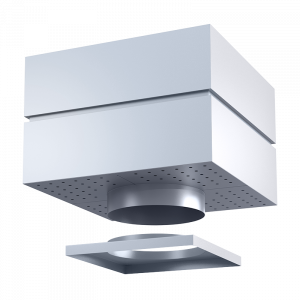
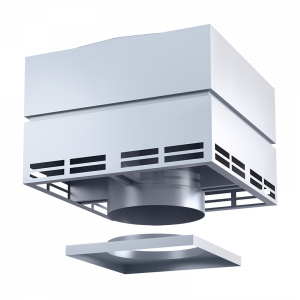
OTSO-U for exhaust air OTSO-U for inlet air
EPD verified roof hoods
The carbon footprint of roof hoods has been calculated as part of the requirements of the EPD environmental statement.
Product code
| OTSO |
–
|
U |
–
|
630 |
–
|
ZN |
–
|
S |
–
|
Ma |
– |
KL60 |
– |
L |
| 1 |
|
2 |
|
3 |
|
4 |
|
5 |
|
6 |
|
7 |
|
8 |
1 = Climecon roof hood type
2 = Direction of the air flow: U = Roof hood for exhaust air, S = Roof hood for inlet air
3 = Connector size
4 = Material: ZN = Galvanized steel, HST = High-grade stainless steel plate, Ma = Painted steel
5 = Connection type: S = Rain cover connection, L = Flange, T = Male connector
6 = Painting: Note! When ordering a paint job, the desired colour and paint film thickness shall be indicated in the order.
7 = Roof transition: KL30 = Fire class EI30, KL60 = Fire class EI60, KL120 = Fire class EI120
Note! The upper connection on the roof transition always matches the size and the model of the connection of the roof hood. The connection on the lower end shall be chosen separately.
8 = Lower end connection of the roof transition: L = Flange, S = Male connector, IT = Coupling connector
Note! In order to define a roof hood model the data for the five first points is needed.
Recommended air flow area
Recommended air flow area OTSO-U
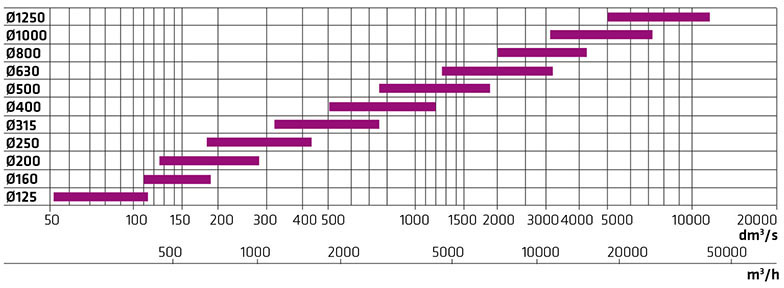
Air velocity min 4 m/s and max 14 m/s.
Pressure loss less than 100 Pa.
Recommended air flow area OTSO-S
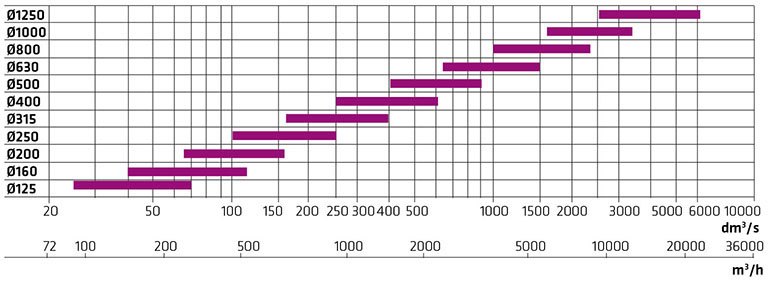
Max pressure loss 40 Pa.
Face velocity max 2 m/s.
Duct speed min 2 m/s and max 5 m/s.
Dimensions
Dimensions OTSO-U
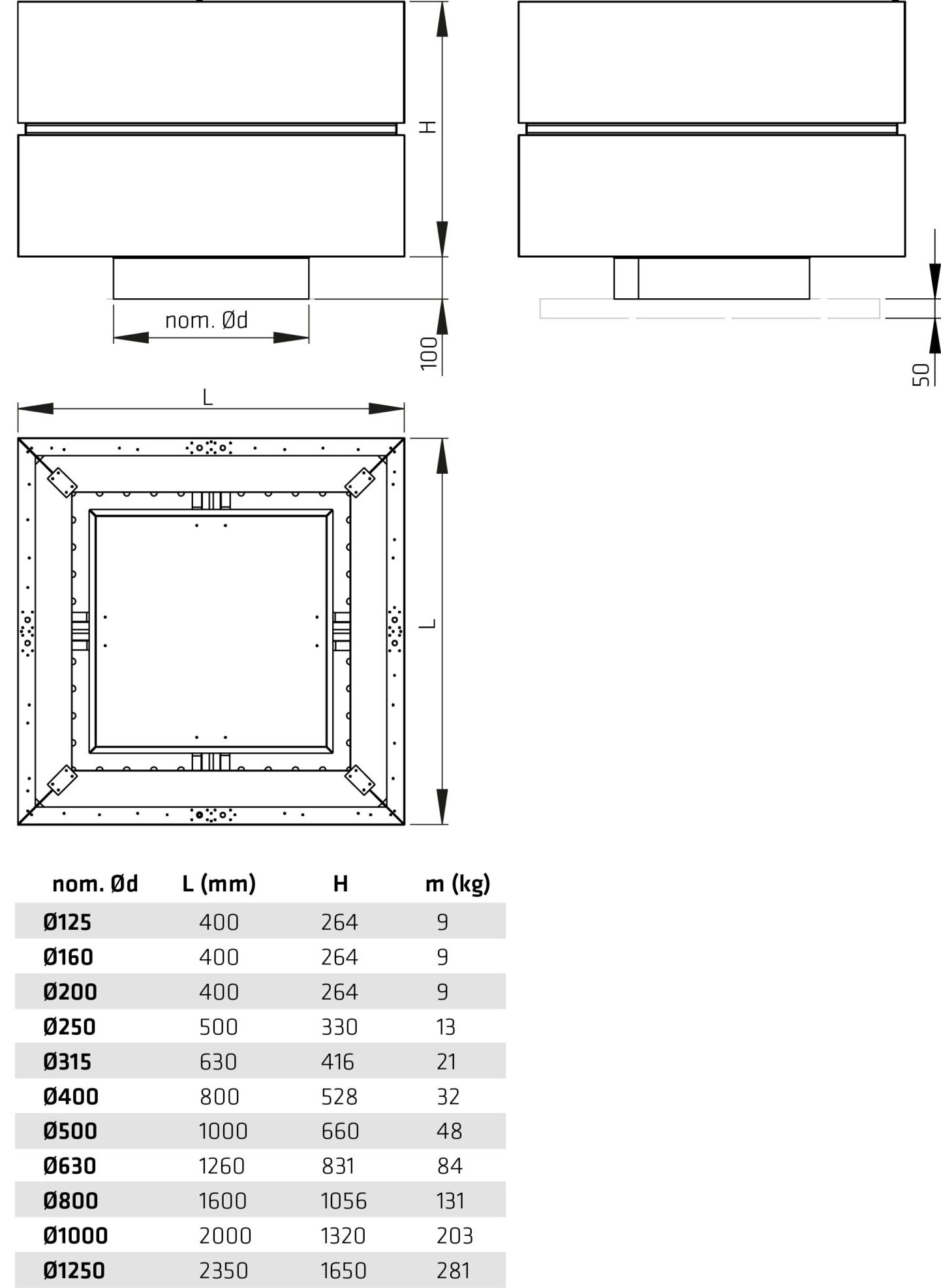
Dimensions OTSO-S
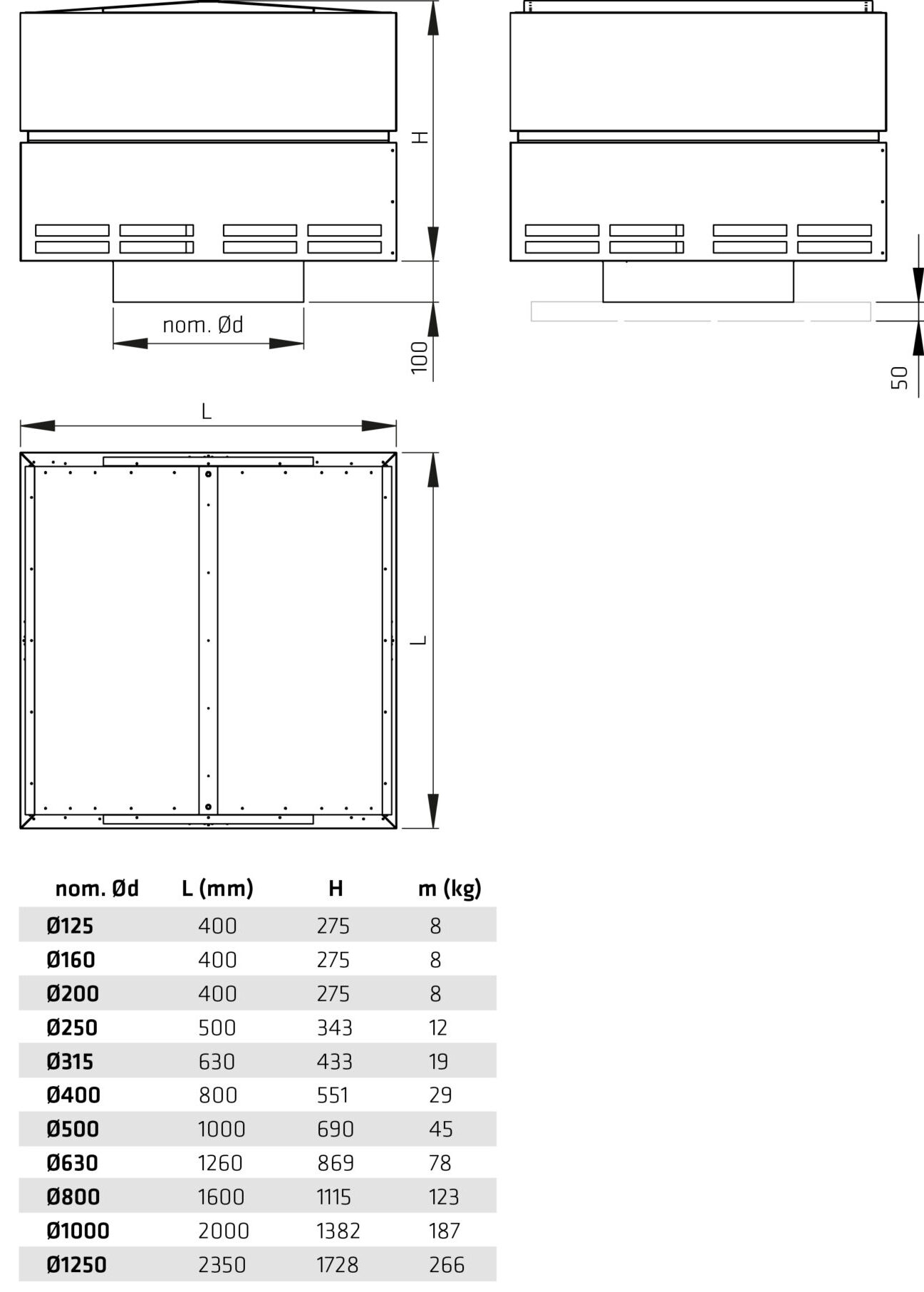
Dimensions for standard rain covers
The standard rain covers are designed to be compatible with Climecon roof transitions. In addition to the outer dimensions of the roof transition there is a space of 25 mm reserved on each side for the structure protecting the roof transition. Rain covers for other sizes can be made from order.
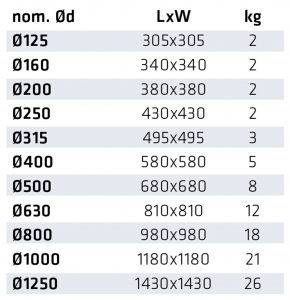
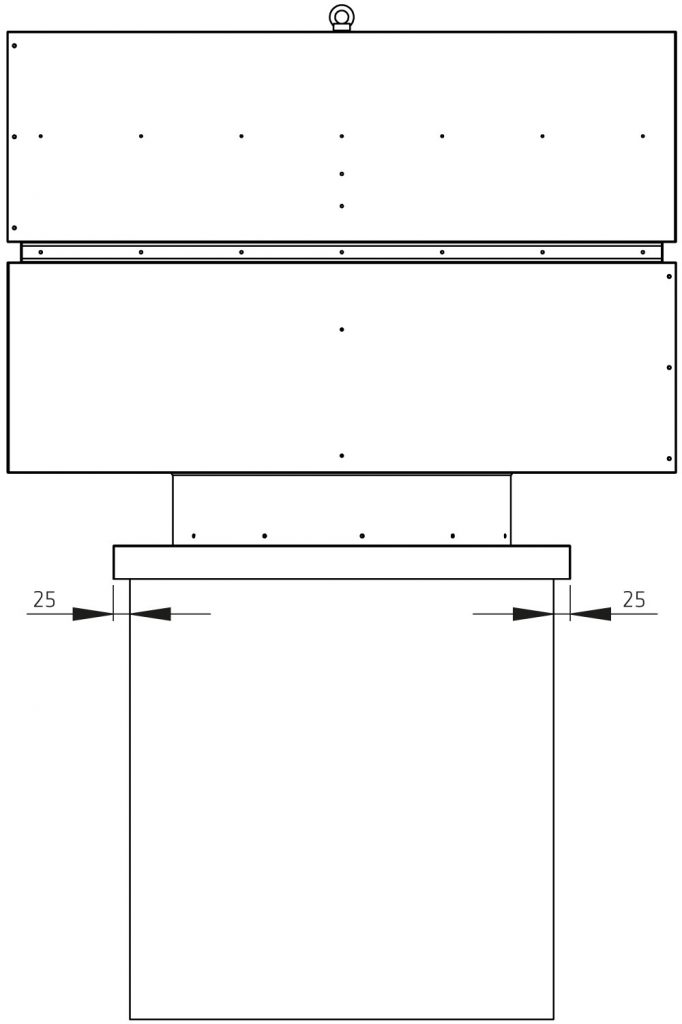
Connections
Rain cover joint connection method:
The rain cover is made at the factory to measures to fit the outlet. The benefit of this connection method is safe insulation against moisture damage, since all the connection seams between the roof hood and the rain cover are factory-made.
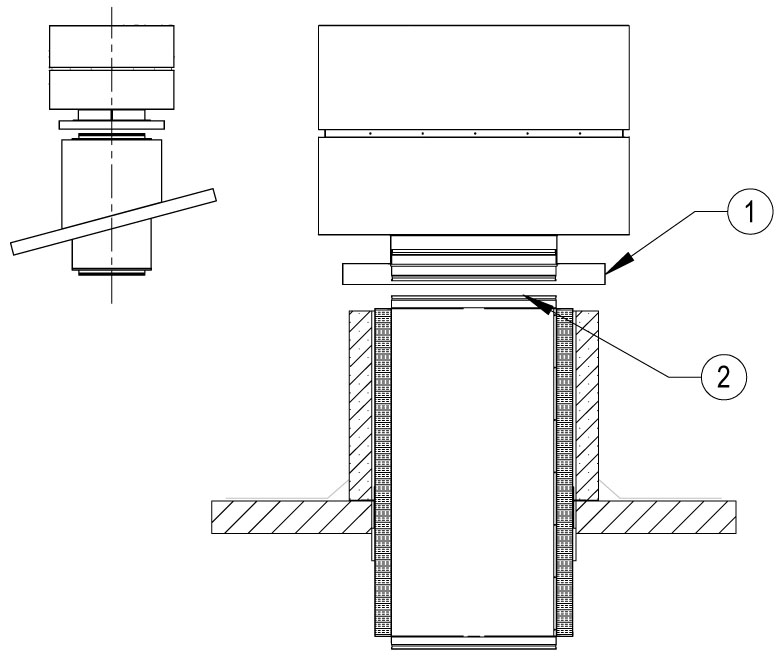
1. Rain cover 2. A roof transition connection according to the connection method of the roof hood
Flange connection method:
Both the flange on the roof hood and the counter flange are included in the delivery.
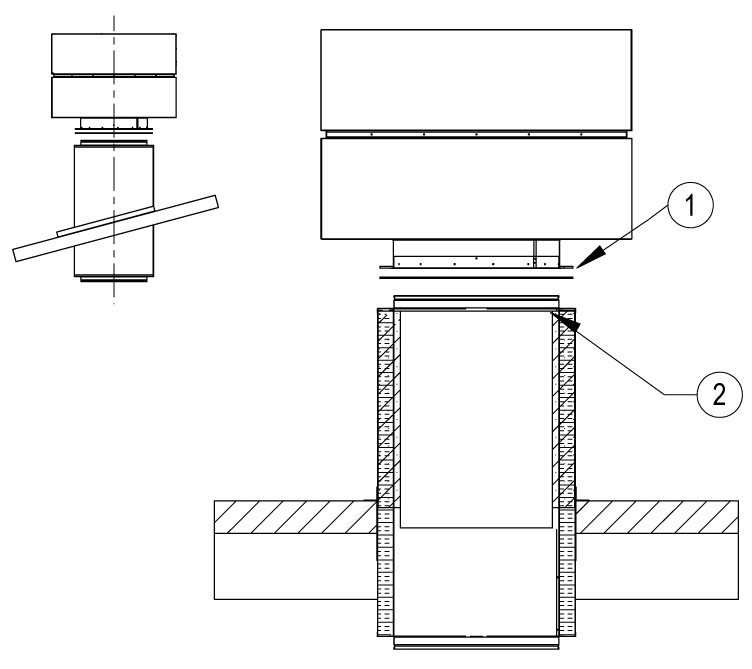
1. Flange 2. A roof transition connection according to the connection method of the roof hood
Male connection method:
The male connection can be used only if the size of the roof hood connection Ø is less than 500 mm.
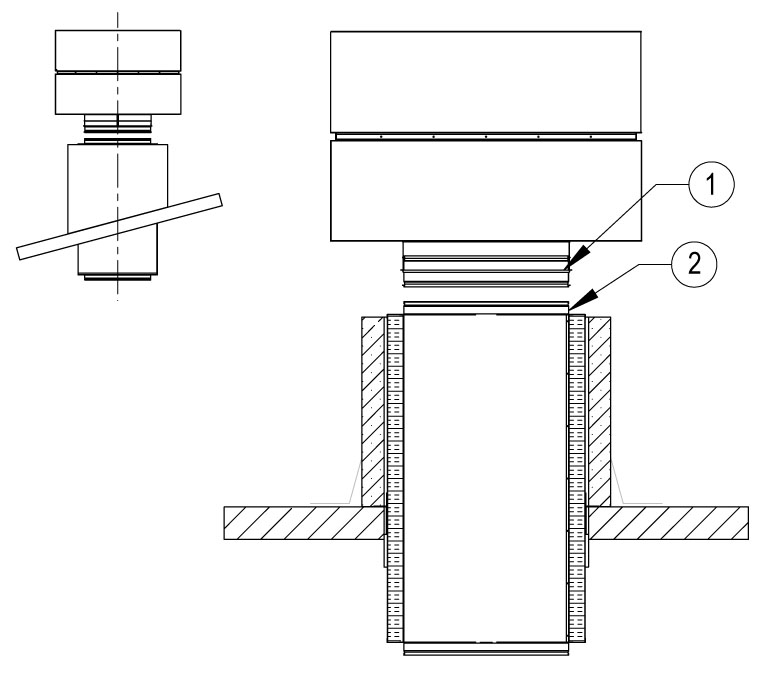
1. Male connector 2. A roof transition connection according to the connection method of the roof hood
Connection with roof transition
Climecon roof transition is made on the factory, sheltered from the weather and always designed just for the particular connection method. The roof transition is available for all three OTSO connections. The fire class of the transition can be selected from EI30, EI60, or EI120. We use PAROC Hvac Fire Slab for fire insulation material. Insulation thickness is always 60 mm in all fire ratings.
The roof transition is attached to a load-bearing roof structure with the L lists (80x80x15) included in the delivery. The roof transition is made from galvanized steel. The upper connection on the roof transition always matches the roof hood. The lower connection method may be chosen according to the product selection menu.
